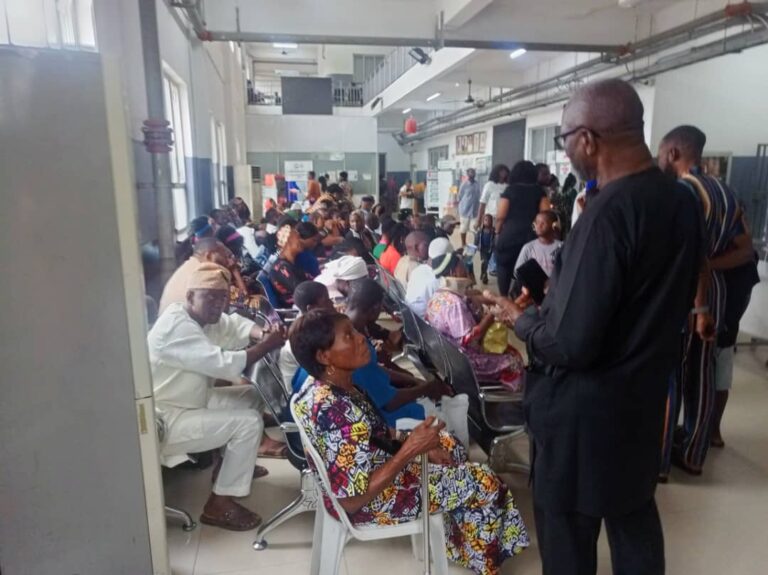By Peter Omopo | July 30, 2025
Public hospitals across the Federal Capital Territory, Abuja, were thrown into disarray on Wednesday as members of the National Association of Nigeria Nurses and Midwives (NANNM), Federal Health Institutions Sector, commenced a seven-day warning strike.
The industrial action, which began in the early hours of the day, left several hospitals unable to operate fully. Some discharged patients, while others scaled back critical services due to an acute shortage of nursing staff.
The nurses’ union had, on July 14, issued a 15-day ultimatum to the Federal Government, urging it to address long-standing grievances or face a total shutdown of healthcare services. According to the National Chairman of NANNM-FHI, Morakinyo Rilwan, the government failed to respond within the deadline, prompting the strike.
The nurses are demanding several urgent reforms, including a review of shift and uniform allowances, creation of a separate salary structure, improved core duty allowances, large-scale employment of nurses, and the establishment of a nursing department within the Federal Ministry of Health.
A visit to the Federal Medical Centre (FMC), Abuja, revealed the mounting pressure on the healthcare system. Patients waited for hours at various departments, including General Out-Patient, Immunisation, Surgical Out-Patient, and Consultation units. Hospital executives from the nurses’ union monitored compliance with the strike.
Victor Asu, NANNM Chairman at FMC, confirmed that no nurse was on duty.
“Our members are fully observing the strike. I personally inspected the Intensive Care Unit, where a patient insisted on being discharged,” Asu said. “Doctors are overwhelmed, and patients are already voicing their frustrations. Normally, nurses provide round-the-clock care, but that service is currently unavailable.”
Abu Isah, a patient’s relative, lamented the delay after arriving with his father at 8 a.m. and still waiting over two hours later. “The process is slow, but we’re hoping for the best,” he said.
Another woman, who declined to be named, expressed her frustration at the long wait to immunise her daughter. “The staff are trying, but I have to return to work—it’s exhausting,” she said.
At the General Hospital, Kubwa, the absence of nurses brought the facility to a near halt. Patients packed the paediatric ward, some sitting on benches or pacing anxiously as only a few doctors struggled to provide care.
“It’s only doctors here, and they’re overwhelmed,” said a parent. “Nurses do so much behind the scenes, from vital signs to basic care. Doctors cannot do it all alone. The government must act before lives are lost.”
In the labour ward, patients were discharged earlier in the day due to the lack of nursing support. A doctor who requested anonymity admitted, “We’re stretched thin. Our capacity is severely limited without nurses. We can only offer basic care.”
The story was the same at National Hospital, Abuja, where the impact of the strike was glaring. Patients crowded waiting areas, some sitting on the floor or leaning against walls as doctors and other healthcare workers took on tasks usually handled by nurses. The result: painfully slow services.
Relatives expressed frustration at the long delays, but many patients chose to remain, fearing their conditions might worsen if they left without care.
Joe Akpi, NANNM Chairman at the National Hospital, warned of more drastic action if the government fails to respond.
“If after this seven-day warning strike our demands are ignored, we will issue a fresh 21-day ultimatum. After that, we will embark on a nationwide indefinite strike,” he said. “We care about the patients, but the system has pushed us to this point.”
At Wuse General Hospital, patients in the Accident and Emergency Unit were discharged after doctors could no longer manage the workload alone.
Simon Adebiyi, a patient at Wuse, said, “The doctors are doing their best, but it’s not enough. We are all tired of waiting endlessly.”
As the strike continues, hospitals in the nation’s capital remain in a precarious state. The government has yet to announce a concrete response, raising fears that the situation may deteriorate further if swift action is not taken to address the nurses’ demands.

